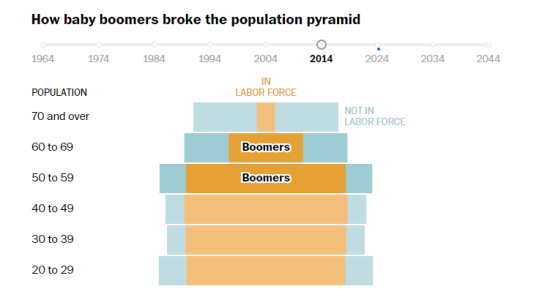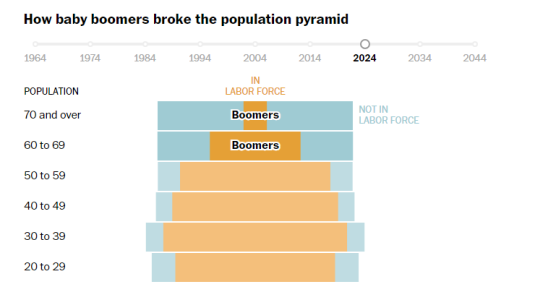Rasputin_Vol
"Slava Ukraina"
- Joined
- Aug 14, 2007
- Messages
- 71,956
- Likes
- 39,753
That's a weird way to measure the strength of the economy. Why not the standard gdp? 9% down from the record is supposed to be bad?


If the Economy Is So Great, Why Are Tax Revenues So Weak? | Ryan McMaken
Federal deficits continue to spiral upward, but deficits aren't just a function of federal spending. Deficits aren't necessary if tax revenues increase to match spending. But that's certainly not where we find ourselves in 2023. Rather, federal spending is rising even as federal revenues have...mises.org

You said it was a weird metric when obviously it isn’t as pointed out by historical trending. Doesn’t prove it true but makes it very probable.It's interesting, but I also find it a little disingenuous to not even attempt to give alternative answers to the question of why tax revenues are down....like the fact that we've had an explosion in green tax credits. Here's an article from the right-wing Heritage Foundation saying slow economy is part of the reason, but names a handful of other reasons. Every measurement of the economy is flawed. I think this is a good marker to look at, but you need context and other markers. GDP should be treated the same way, I only used it because that's what everybody always uses, and I was making a point about beliefs and politics, not about the economy.
I think we have a fake economy, but I think we always have a fake economy. Even the 2007 recession was a fake economy. I don't think we bottomed out as much as we should have. I believe if Trump gets re-elected, we'll see a lot of markers we like. For example with the stock market. But I think this is mostly because confidence will go up, and people will act accordingly. That's still a fake economy.

Biden Raised Taxes, but Tax Revenues Are Way Down This Year. Here Are 5 Reasons Why.
Just because the government raises taxes, doesn’t necessarily mean it will raise more revenues. The Biden administration is discovering that the hard way.www.heritage.org
You said it was a weird metric when obviously it isn’t as pointed out by historical trending. Doesn’t prove it true but makes it very probable.
Krugman is not wrong on this. Trump's economy was strong only because people believed it. Real gdp growth this past quarter was 4.9% and you would never hear the end of how wonderful that is if it were Trump's economy.
real wages are still down; they were up under Trump
interest rates are at generational highs
labor participation still is lower than it was pre-pandemic
the stark market growth is below inflation
credit defaults up
household debt up
there are plenty of real data that are negative about the economy
What is mezzanine funding? Warehouse space? Don’t forget the freight industry. Major red flag.


BTW @volinbham, people usually go with unemployment if they like the number or labor force participation if they like the number...I think you gotta look at them together, but that's beside the point...is it supposed to be higher than it was pre-pandemic? We've had so many boomers retire, and IDK what the number should be.
View attachment 595763
View attachment 595764
This looks like participation rate is trending up for ages 20 to 59, but unfortunately don't have 2019 data to compare it to.

Anything from Krugman gets tossed in the trash with me. I don’t care how many awards, degrees, accolades this ideologue gets, my stupid ass knows his economic theories are garbage after his views on the debt. Suddenly a change in heart after we busted $1T in deficit interest and anybody with common sense saw the trajectory. Such a strategic error that we are in bad trouble.It's still a bit below pre-pandemic - I don't know why it shouldn't be at the same rate as 4 years ago.

Civilian labor force participation rate
www.bls.gov
The larger point is that there is plenty of economic data that is negative so Krugman is cherry picking to say people are misinformed. Relying on employment alone or GDP doesn't tell the whole story.
Effectively, individual people are correct in assessing their own economic situation and they are both poorer in terms of wages and their investments haven't kept pace with inflation. They have more debt than they did and that debt is more expensive.
On some measures the economy is good, on others it is not good; particularly the one's people feel most.

It's still a bit below pre-pandemic - I don't know why it shouldn't be at the same rate as 4 years ago.

Civilian labor force participation rate
www.bls.gov
The larger point is that there is plenty of economic data that is negative so Krugman is cherry picking to say people are misinformed. Relying on employment alone or GDP doesn't tell the whole story.
Effectively, individual people are correct in assessing their own economic situation and they are both poorer in terms of wages and their investments haven't kept pace with inflation. They have more debt than they did and that debt is more expensive.
On some measures the economy is good, on others it is not good; particularly the one's people feel most.
No way 60% of Republicans believe we are at a 50 year high UE. Garbage.Because of boomers retiring.
Ehhh, but not all the questions were about their own situation. For example, 60% of Republicans believed the unemployment rate was at a 50-year high when it's actually close to a 50-year low. Wages are growing faster than inflation, but 84% of Republicans don't believe that. S&P500 is up 16% this year but 66% think it's down. Etc.
You make good points and Krugman is an arrogant dick, but he's also completely right about a lot of it.
WOW... leverage. See, this is the consequence of low interest rates. People start searching for higher yields. This is the credit default swap crash of our times coming soon.
The Clearest Sign Yet That Commercial Real Estate Is in Trouble
Foreclosures are surging in an opaque and risky corner of commercial real-estate finance, offering one of the starkest signs yet that turmoil in the property market is worsening.www.wsj.com
Lenders this year have issued a record number of foreclosure notices for high-risk property loans, according to a Wall Street Journal analysis. Many of these loans are similar to second mortgages and commonly known as mezzanine loans.
Lenders liked providing mezzanine debt because these loans generated higher yields, often more than 10% during years when interest rates on long-term government bonds hovered around 2%.
Mezzanine loans are notoriously opaque. Unlike mortgages, they don’t appear in property records, so real-estate data companies can’t track many of them. No one knows how much of this debt is out there.
